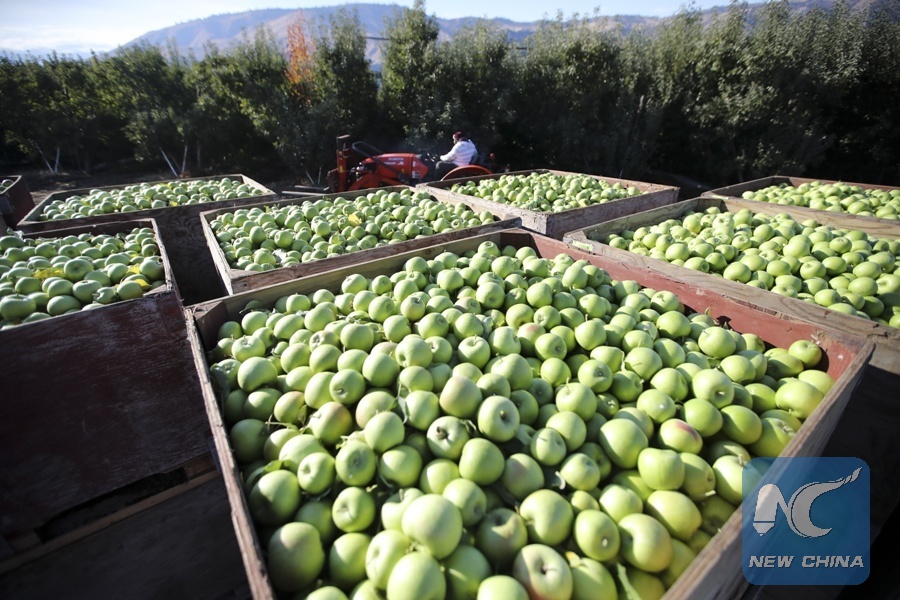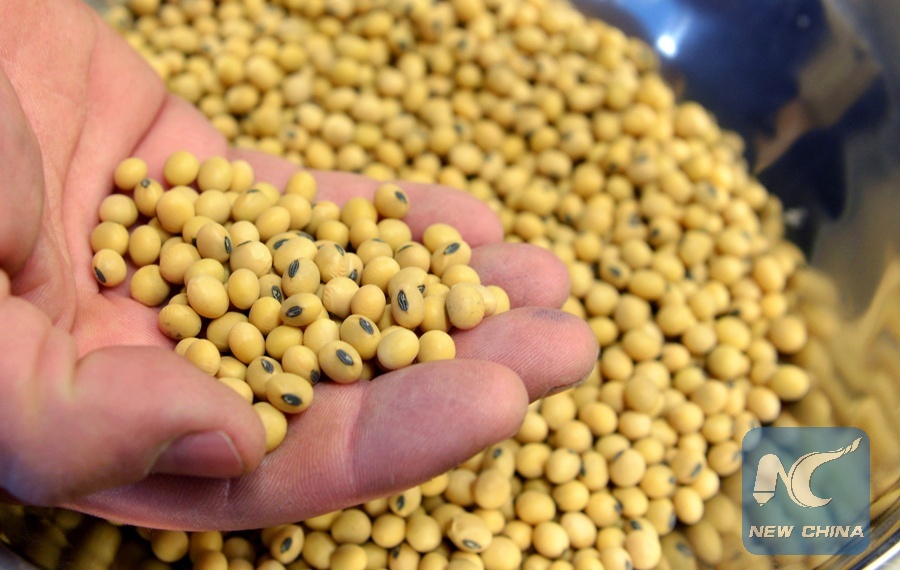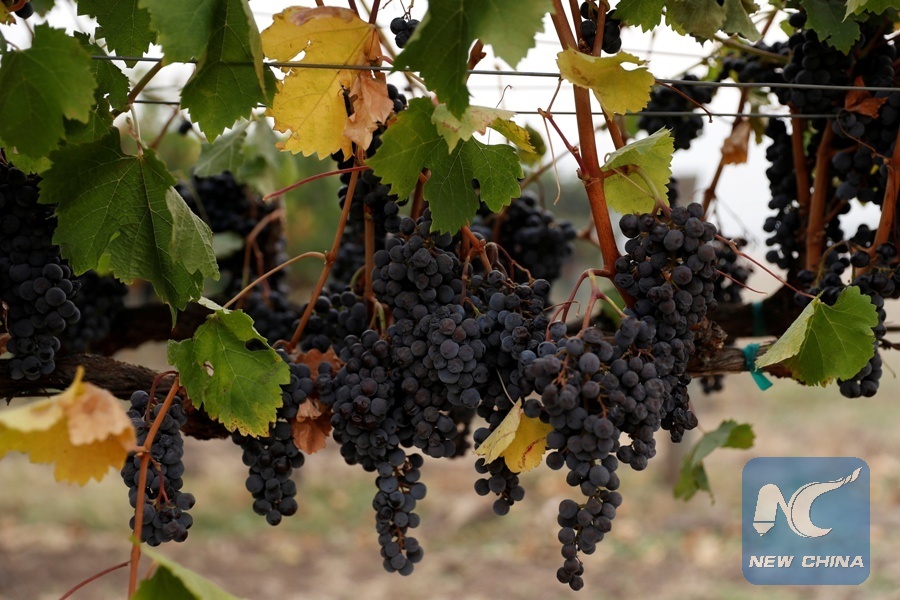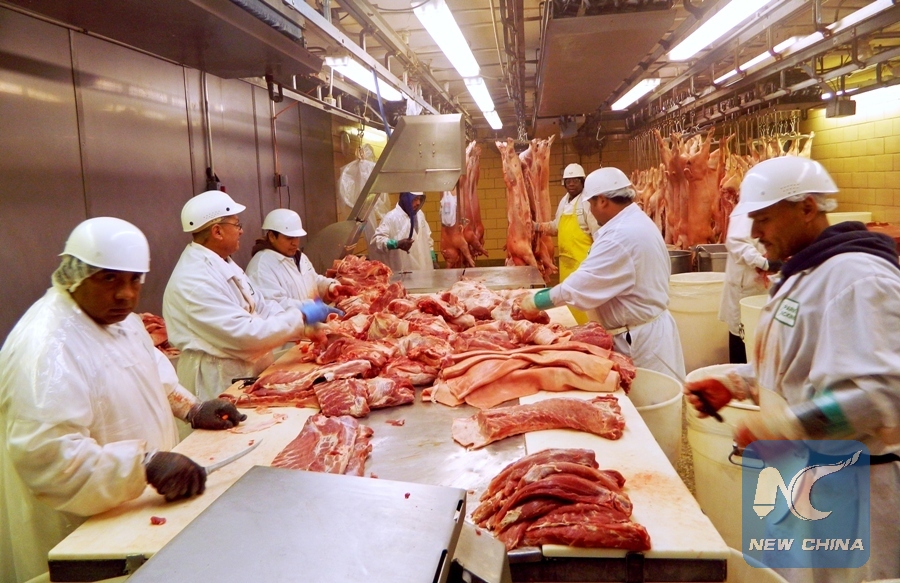
Containers full of granny smith apples are seen in an apple orchard of Auvil Fruit Company in Wenatchee, Washington State, the United States, on Nov. 3, 2017. China has become one of Auvil's biggest overseas markets for its apples and cherries in recent years since the company learned about the B2C platform Tmall. (Xinhua/Wang Ying)
CHICAGO, March 29 (Xinhua) -- U.S. protectionist measures of unilaterally imposing steep tariffs will not solve trade problem but risk opening a Pandora's box to backfire on its own economy, said U.S. experts.
"The recent action by U.S. President (Donald) Trump to slap tariffs on China outside of the established WTO rules ... is troubling," Tom Watkins, an advisor to Michigan-China Innovation Center, told Xinhua in a recent interview.
"While it has some short term political benefit to President Trump's political base of disenfranchised voters, it is unlikely to have any significant long-term economic benefit to working class people in America, nor address real issue of free and fair trade imbalances," Watkins said.

A sample of clean, processed soybeans at Peterson Farms Seed facility in Fargo, North Dakota, U.S., Dec. 6, 2017. (Xinhua/REUTERS)
Many U.S. scholars echoed Watkins' view, as Trump signed a memorandum last week that could impose tariffs on up to 60 billion U.S. dollars of imports from China and place restrictions on Chinese investments in the United States.
China's Ministry of Commerce issued a warning the following day and also announced a plan for reciprocal tariffs on imported U.S. products worth about 3 billion dollars, targeting 128 categories of U.S. products including pork, wine and seamless steel tubes.
"Tariffs are not going to correct the trade deficit with China," said Khairy Tourk, a professor with the Stuart School of Business of the Illinois Institute of Technology in Chicago. "The reality is that the tariff burden will fall on the silent majority, the consumers. This would be difficult for the middle class and it could backfire on those responsible for the price increases."
Tourk said China's measured response shows that Beijing is not eager to start a trade war. "Obviously, if the situation is to escalate, the global economy will suffer," the expert added.

Grapes are seen at the Kunde Winery in California, U.S., Oct. 10, 2017. (Xinhua/REUTERS)
"A trade war only disadvantages our already disadvantaged populations," said William J. Carroll, president emeritus of the Benedictine University.
U.S. National Pork Producers Council (NPPC) posted a statement on its website the same day when Trump signed the memorandum, in which NPPC President Jim Heimerl said higher tariffs on imports from China will in turn harm U.S. producers and undermine the rural economy.
"No one wins in these tit-for-tat trade disputes, least of all the farmers and the consumers," said Heimerl.

File Photo: Workers cut pork at Park Packing, one of Chicago's few remaining slaughterhouses, in Chicago, Illinois July 18, 2015. (Xinhua/REUTERS)
U.S. pork industry exported 1.1 billion dollars of products to China in 2017. "China is a very important market for U.S. pork producers. In 2017, China was the second largest U.S. pork export market by volume and the third largest export market by value," Jim Monroe, NPPC senior communications director, told Xinhua.
Scholars said U.S. trade deficit is a problem, but not in the way Trump's administration thinks. "The deficit reflects lack of savings," said Tourk. It in fact reflects a deeper problem of imbalance in the flow of international investment.
"The best policy to increase American exports is to increase productivity," the professor said, adding this will require years to accomplish.

